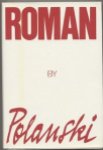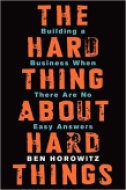Money and Moguls @ BYOB Party in Jan 2020 (Part 4)
 Ankit likes to read books on personal development in all spheres – financial, emotional, spiritual, etc. ” I know you don’t encourage the odd bestseller but here I am,” Ankit said as he talked about what he called the Bible of financial awareness — Rich Dad, Poor Dad by Robert T. Kiyosaki and Sharon Lechter. This is a story about two dads one who lacks money and one who loves money. The book is framed around six main teachings and lessons from both dads.
Ankit likes to read books on personal development in all spheres – financial, emotional, spiritual, etc. ” I know you don’t encourage the odd bestseller but here I am,” Ankit said as he talked about what he called the Bible of financial awareness — Rich Dad, Poor Dad by Robert T. Kiyosaki and Sharon Lechter. This is a story about two dads one who lacks money and one who loves money. The book is framed around six main teachings and lessons from both dads.
Kiyosaki mentions his biographical details to give context. He talks about his business decisions, free enterprise, risk-taking and investment options.
Jaya added a word of warning, “There is no doubt that the book introduces many readers to financial literacy. However, the advice is careless at times. You need to be careful before making business decisions.”
Then there is the argument that while 80% of people are employees or small business owners. it’s the 20% risk-takers who own 80% of the world’s wealth. “This is nothing but survivorship bias,” Abhaya said, “We only hear success stories. What about the many who have failed?”
“Reading Nassim Nicholas Taleb will overturn any such mental distortions,” Bindu said.
Cohen countered this with his belief that even business and investment can be understood via fiction. “Books by entrepreneurs don’t really read as fiction,” he said. He then elaborated on the famous book A Town Like Alice by Nevil Shute, which tells an entrepreneurial story of Jean Paget, a woman who works in Malaya and must flee when the Japanese attack. She ends up setting shop in Australia.
Cohen likes books of the didactic sort that reminisce on the human condition. “When I ran out of fiction by Ayn Rand, Bernard Shaw, Robert Pirsig, Nevil Shute and Paulo Coelho, I turned to books about civilization and society. Fantasy fiction like LOTR is actually history in a non-factual way. I like this kind of history, so much better than the ridiculous dates and facts that we use to teach children in the classroom.
“I’ve also enjoyed reading RK Narayan though I found VS Naipaul’s interpretation of Indian culture in India: A Wounded Civilization completely off the mark. On that note, I would like to introduce you all to Travels in the Mogal Empire by Francois Bernier.
 “It’s astonishing to read an account by someone who witnessed firsthand the succession battle that took place between Dara Shikoh and Aurangzeb. It had an almost Game of Thrones feel. With fiction, maybe you couldn’t really ask the question why did Voldemort do such and such but with a real life account you do ask that question and that quest leads you to history or what really happened. There’s a fine level of detailing in this translation. Occasionally we get glimpses of Aurangzeb’s chaste conversation in Dakhani Urdu, not to mention the emotions, personal insults, betrayals, brutalities and intrigue that filled the Mughal courts. For some reason, Shikoh’s murder reminded me of Bernard Shaw’s famous play Saint Joan where a young peasant girl on a mission is branded a witch — a classic example of a politically motivated murder. Travels in the Mogal Empire is better than any historical narrative fiction I have read after Babarnama.”
“It’s astonishing to read an account by someone who witnessed firsthand the succession battle that took place between Dara Shikoh and Aurangzeb. It had an almost Game of Thrones feel. With fiction, maybe you couldn’t really ask the question why did Voldemort do such and such but with a real life account you do ask that question and that quest leads you to history or what really happened. There’s a fine level of detailing in this translation. Occasionally we get glimpses of Aurangzeb’s chaste conversation in Dakhani Urdu, not to mention the emotions, personal insults, betrayals, brutalities and intrigue that filled the Mughal courts. For some reason, Shikoh’s murder reminded me of Bernard Shaw’s famous play Saint Joan where a young peasant girl on a mission is branded a witch — a classic example of a politically motivated murder. Travels in the Mogal Empire is better than any historical narrative fiction I have read after Babarnama.”
Other historical fiction book titles that cropped up in the ensuing discussion were White Mughals by William Dalrymple, Partitions by Kamaleshwar and Cuckold by Kiran Nagarkar.
More books in Part 5.


 Madhu Sagar talked about a non-fiction book by US journalist Daniel Coyle.
Madhu Sagar talked about a non-fiction book by US journalist Daniel Coyle.  Ajay got a biography titled
Ajay got a biography titled  Nilesh picked up
Nilesh picked up 